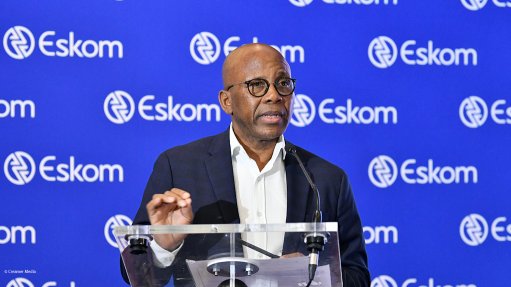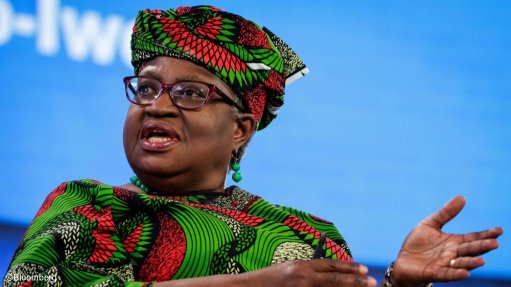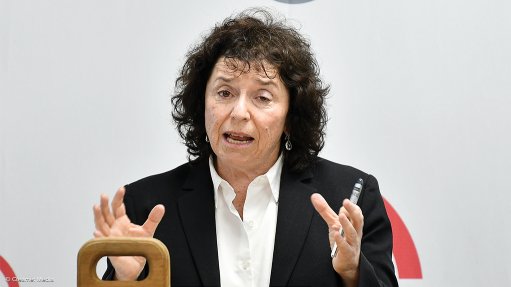Post-EU Britain seeks to promote and defend global free trade
UK Prime Minister Boris Johnson has proclaimed that, now that his country has left the European Union (EU), it will campaign for global free trade. He did so in a speech early this month at the National Maritime Museum, at Greenwich, east of London.
“And, frankly, it is not a moment too soon, because the argument for this fundamental liberty is now not being made,” he asserted. “[I]t has been free trade that has done more than any other single economic idea to raise billions out of poverty and incredibly fast. In 1990, 37% of the world’s population [were] in absolute poverty – that is now down to less than 10%. And yet my friends, I am here to warn you today that this beneficial magic is fading. Free trade is being choked and that is no fault of the people – that’s no fault of individual consumers. I am afraid it is the politicians who are failing. The mercantilists are everywhere; the protectionists are gaining ground. “From Brussels to China to Washington, tariffs are being waved around like cudgels, even in debates on foreign policy, where, frankly, they have no place – and there is an ever-growing proliferation of nontariff barriers and the resulting tensions are letting the air out of the tyres of the world economy.”
He warned that volumes of global trade were now trailing behind worldwide economic growth. But, he cited, from 1987 to 2007, global trade had grown about twice as fast as global gross domestic product had. “Now it barely keeps pace and global growth is itself anaemic and the decline in global poverty is beginning to slow.” He also referred to the emergence of what he called “bizarre autarkic rhetoric” and that there was “a risk that new diseases such as the coronavirus would trigger panic and a desire for market segregation that went beyond what was medically rational, to the point of doing real and unnecessary economic damage”.
He affirmed that it was necessary for “some government somewhere that is willing at least to make the case powerfully for freedom of exchange”. Jestingly, he compared this defence and promotion of the virtues and value of free trade with the character of Superman, with “cloak flowing as the supercharged champion of the right of the populations of the Earth to buy and sell freely among [one another] . . . I can tell you in all humility that the UK is ready for that role”.
He reported that his country was ready for the “great multidimensional game of chess” in which the UK would negotiate trade agreements with several partners simultaneously. Teams of lawyers, economists and trade policy experts had already been recruited and were ready. “[I]f we don’t have enough, or if they don’t perform, believe me, we will hire some more.
”He highlighted the Commonwealth as a grouping whose membership included economies that were among the most rapidly growing in the world. “It was fantastic at the recent Africa summit to see how many wanted to turn that great family of nations into a free trade zone, even if we have to begin with clumps and groups, and we will take these ideas forward at Kigali, [in Rwanda], in June.”
He also cited the opportunities presented by the Comprehensive and Progressive Agreement for Trans-Pacific Partnership. This is an 11-nation free trade agreement, whose members are Australia, Brunei, Canada, Chile, Japan, Malaysia, Mexico, New Zealand, Peru, Singapore and Vietnam. Then there was the US, which already accounted for 20% of all British exports.
Regarding the EU, Johnson said: “We want a comprehensive free trade agreement, similar to Canada’s. But in the very unlikely event that we do not succeed, then our trade will have to be based on our existing withdrawal agreement with the EU. The choice is emphatically not ‘deal or no deal’. We have a deal . . . The question is whether we agree a trading relationship with the EU comparable to Canada’s – or more like Australia’s. And I have no doubt that, in either case, the UK will prosper.”
Comments
Announcements
What's On
Subscribe to improve your user experience...
Option 1 (equivalent of R125 a month):
Receive a weekly copy of Creamer Media's Engineering News & Mining Weekly magazine
(print copy for those in South Africa and e-magazine for those outside of South Africa)
Receive daily email newsletters
Access to full search results
Access archive of magazine back copies
Access to Projects in Progress
Access to ONE Research Report of your choice in PDF format
Option 2 (equivalent of R375 a month):
All benefits from Option 1
PLUS
Access to Creamer Media's Research Channel Africa for ALL Research Reports, in PDF format, on various industrial and mining sectors
including Electricity; Water; Energy Transition; Hydrogen; Roads, Rail and Ports; Coal; Gold; Platinum; Battery Metals; etc.
Already a subscriber?
Forgotten your password?
Receive weekly copy of Creamer Media's Engineering News & Mining Weekly magazine (print copy for those in South Africa and e-magazine for those outside of South Africa)
➕
Recieve daily email newsletters
➕
Access to full search results
➕
Access archive of magazine back copies
➕
Access to Projects in Progress
➕
Access to ONE Research Report of your choice in PDF format
RESEARCH CHANNEL AFRICA
R4500 (equivalent of R375 a month)
SUBSCRIBEAll benefits from Option 1
➕
Access to Creamer Media's Research Channel Africa for ALL Research Reports on various industrial and mining sectors, in PDF format, including on:
Electricity
➕
Water
➕
Energy Transition
➕
Hydrogen
➕
Roads, Rail and Ports
➕
Coal
➕
Gold
➕
Platinum
➕
Battery Metals
➕
etc.
Receive all benefits from Option 1 or Option 2 delivered to numerous people at your company
➕
Multiple User names and Passwords for simultaneous log-ins
➕
Intranet integration access to all in your organisation

















